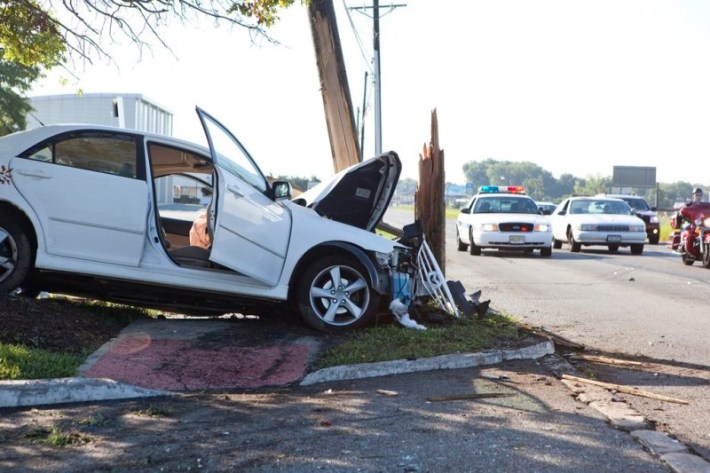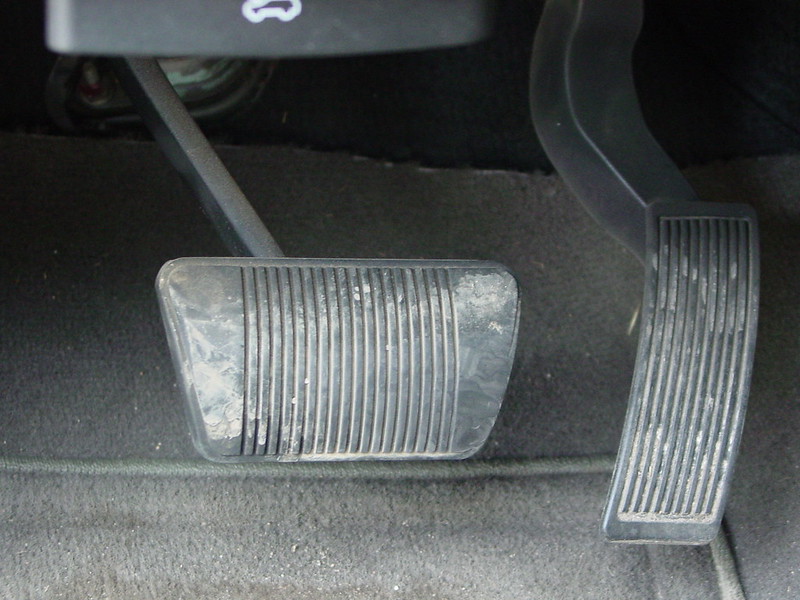Note:GJEL Accident Attorneys regularly sponsors coverage on Streetsblog San Francisco and Streetsblog California. Unless noted in the story, GJEL Accident Attorneys is not consulted for the content or editorial direction of the sponsored content.
The slaughter wrought by Bay Area drivers this May has been difficult to comprehend. At least six people were killed in five separate incidents. All evidence points to reckless driving and speeding as root causes.
A driver in Bay Point even managed to kill a horse this weekend (and seriously injured its rider).
As if all this horror isn't bad enough, the coverage, in general, has been awful.
Most of the reporting continues to blame "cars" and "vehicles" as if nobody controls them and the reason for all this death and dismemberment is mysterious. "A 63-year-old Oakland woman died Saturday night near the 6200 block of Bancroft Avenue after she was run over by multiple vehicles [emphasis added], none of which stopped," reported the Bay City News Foundation's Tony Hicks. Two pedestrians on the sidewalk in San Francisco were killed "by a taxi cab" over the weekend reported ABC-7's Tara Campbell. Earlier this month, a man in San Francisco was "killed by a truck," according to NBC's affiliate. A pedestrian was killed by a "vehicle" in the Tenderloin on Sunday.
And on Friday, a seven-year-old was "killed by [a] car" in Fremont, according to Ian Cull and the staff at NBC.
Was there a driver?
— Andy (@Shenanigans_ATL) May 21, 2022
To answer Andy's quip above, yes, there was a driver. And the car ended up on the front lawn because the driver failed to hit the larger of the two pedals in the lead image.
From Peter Flax's 2020 post on the ongoing, subpar reporting on traffic violence:
You never see news stories that share accounts of people killed by knives or bullets — to state the obvious, you read or watch stories about victims being killed by an armed gunman or knife-wielding gang member. Police officers and journalists may be subconsciously squeamish about this usage because they don’t generally see motor vehicles as weapons. The simplest solution is to stick to the facts. A pedestrian was killed on Main Street after getting hit by a truck driver. A bike rider died after getting hit by a motorist on 3rd Avenue. And so on.
So why do reporters continue to write inaccurate and misleading headlines, leads, and Tweets? Why don't they write stories that show an understanding that cars and trucks are controlled directly by often irresponsible people, such as in the clear case of the multiple hit-and-run drivers who ran over a woman on Bancroft Avenue? Note the reporters don't refer to the little boy in Fremont who was killed as a bicycle, so why do they refer to the driver as a car?
NBC even had this offensive, insensitive victim-blamey statement in its story:

Why is it even remotely relevant if the kid had a piece of Styrofoam on his head? Obviously it didn't work against a motorist speeding in a 3.5-ton car. What's the lesson here, except that maybe if a Styrofoam helmet is your society's strategy for keeping a little boy safe from drivers, you're doing it wrong?

So why do mainstream reporters put common sense aside and try to blame everything but the drivers for these tragedies?
I used to work for a mainstream radio station in L.A. where my higher-up would make calls and read files while racing down the freeway and city streets (I used to sit in the passenger seat terrified for my life, trying to persuade her to put down the f*cking phone). Our news director would insist reporters take calls while driving. My superiors overruled me when I said we should refuse to put callers on the air if they're driving. That's typical in the mainstream media. Remember the NY Times famously tone-deaf "She texts while she drives" accolade for Maggie Haberman? Or how about Hillel Aron's infamous LA Weekly piece dismissing the reams of evidence on the dangers of texting and driving?
I think that's why, consciously or not, mainstream journalists continue to frame traffic violence as accidental and why they strive to remove agency from crashes. It's classic windshield bias; they behave just like the irresponsible drivers they're reporting on, so they don't want to call them out. I think it's that simple.
The good news is there are reporters such as Michael Cabanatuan, whose SF Chron story about the horse refers consistently to the "driver," not the car, as the source of the crash. And the word "accident" seems to be showing up less frequently on most outlets. But the majority of reporters still don't comprehend--or don't care about--their contribution to the framing and narrative that drivers somehow aren't responsible for the often gory results of their infractions.
Journalists, please refer to Peter Flax's great guide as your style manual for reporting on crashes.






